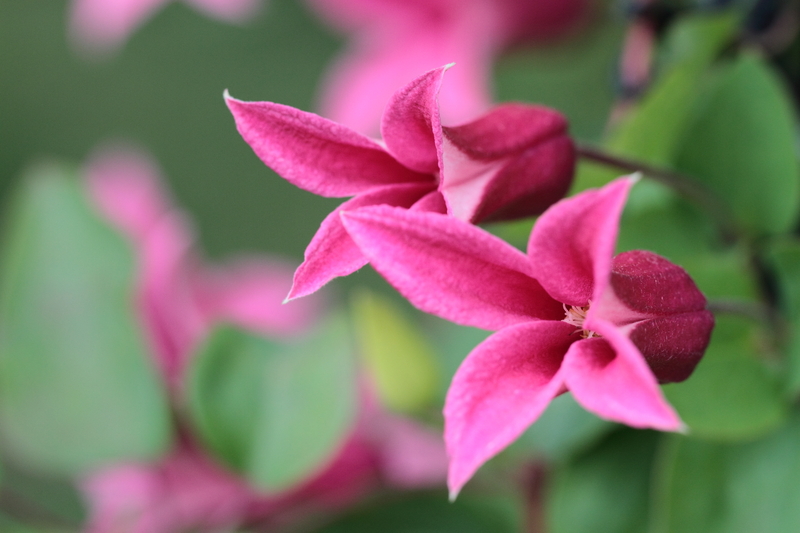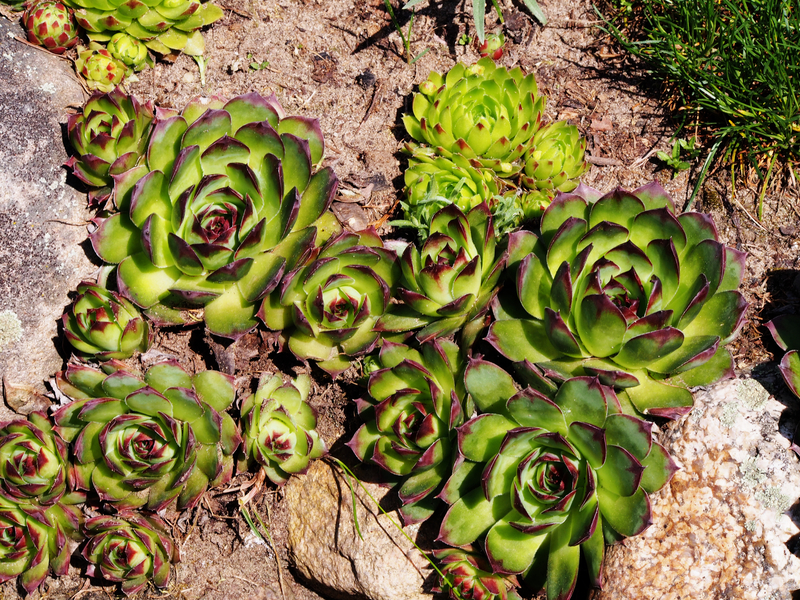Master Gardening: 9 Crucial Tips for Beginners
Posted on 24/06/2025
Are you eager to cultivate a thriving garden but unsure where to start? Master gardening is an exciting and rewarding hobby that offers fresh air, beautiful landscapes, and even delicious, homegrown produce. For those just starting out, the journey might seem overwhelming, but don't worry! With the right advice and clear steps, you can transform even the smallest patch of earth into a lush, productive oasis.
This comprehensive guide presents nine crucial tips every beginner gardener should know. Whether you're aiming for vegetable gardens, flower beds, or a mix of both, these expert gardening suggestions will help you develop the green thumb you've always dreamed of. Ready to start your journey towards master gardening? Let's dig in!
1. Understand Your Local Climate & Soil
The foundation of successful gardening is knowing the environment you'll be growing in. Every region has different conditions--so before breaking ground, take time to analyze your garden's climate and soil.
- Climate Zone: Use online tools or local extension offices to identify your USDA Hardiness Zone. This helps determine which plants thrive in your area.
- Soil Composition: Is your soil clay, sand, silt, loam, or a mixture? Different soils hold water and nutrients differently. Conduct a soil test for pH and fertility--local garden centers often offer these kits.
- Sunlight: Observe how much sun your prospective garden spot gets. Most edible and flowering plants need at least 6 hours of direct sun.
Understanding these elements is your first big step toward master gardening. Plants that fit your conditions are less likely to fail and need fewer interventions.

2. Start Small & Select the Right Plants
As a beginner gardener, it's tempting to plant everything at once. Instead, start with a manageable garden space--such as a plot of 6x6 feet or a few raised beds. This helps you focus attention and build skills.
How to Choose Your Starter Plants
- Begin with easy-to-grow varieties. Some of the best options for beginners include sunflowers, marigolds, lettuce, radishes, and cherry tomatoes.
- Avoid plants that are high maintenance or have long growing seasons until you gain confidence.
- Consider native species or those suited to your zone--they're hardier and require less effort to maintain.
Pro Tip: Read plant labels or seed packets carefully for instructions on spacing, sunlight, and watering needs. The more you know about a plant's preferences, the better chance you have of success!
3. Plan Your Garden Layout Thoughtfully
Master gardeners don't just start planting at random--they design their garden layout with intention and strategy.
Finance and Space Management
- Draw a basic diagram of your garden area. Use graph paper or online planning tools.
- Mark out where the sun rises and sets to maximize each plant's light exposure.
- Group plants with similar water and sun needs together.
- Leave enough space to walk between rows or beds--around 18-24 inches is typical.
- Rotate crops each season to reduce pests and maintain soil health.
Well-organized garden beds are easier to maintain, look better, and produce healthier plants.
4. Invest in the Right Gardening Tools
Every skilled gardener has a trusty toolkit. While you don't need every gadget on the market, a few essential gardening tools will make your work much easier.
- Hand trowel and fork - for digging, mixing soil, and transplanting seedlings.
- Pruning shears - for trimming plants and harvesting.
- Gloves - to protect your hands from soil, thorns, or insects.
- Watering can or hose - so you can hydrate your plants efficiently.
- Garden fork or spade - for breaking up soil and clearing beds.
Quality tools last longer and save you frustration. Keep them clean and dry for best performance.
5. Master Soil Preparation (It's More Important Than You Think!)
The secret to lush gardens is healthy, rich soil. Plants get nutrients, moisture, and support from the ground beneath them. Follow these steps to supercharge your soil:
- Remove rocks, weeds, or debris from planting areas.
- Mix in plenty of organic matter: compost, aged manure, or leaf mold improve drainage, aeration, and nutrition.
- Use mulch around plants to retain moisture, suppress weeds, and regulate soil temperature.
- Amend clay or sandy soils with compost for better structure and water retention.
Healthy soil is where master gardening truly begins. Think of it as your garden's foundation for years to come.
6. Water Wisely: Develop the Right Irrigation Habits
One of the most common mistakes in beginner gardening is over- or under-watering.
Key Watering Guidelines
- Water deeply, but less often. Aim to soak the soil several inches below the surface.
- Water in the early morning or evening to reduce evaporation.
- Check soil moisture regularly. If the soil feels dry an inch below the surface, it's time to water.
- Invest in a rain gauge or soaker hose to manage water use efficiently.
- Mulch helps soil retain water and shields roots on hot days.
Proper watering minimizes disease risk and boosts plant growth--one of the hallmarks of professional gardening.
7. Feed Plants for Optimal Health
Just like people, plants need regular nutrition to grow strong. While compost and manures do much of the heavy lifting, you might also want to supplement with organic or slow-release fertilizers.
Tips for Fertilizing Like a Master Gardener
- Choose fertilizers designed for your plant type (vegetables, flowers, shrubs, etc.).
- Too much fertilizer burns roots, but too little can stunt growth.
- Follow label instructions carefully--never overdo it!
- Water plants after fertilizing to help nutrients reach the roots.
- Fish emulsion and seaweed extracts are great organic options for beginners.
Healthy, well-fed plants are more productive and resistant to pests and diseases.
8. Monitor for Pests, Diseases & Weeds
Nature is full of surprises--sometimes unwelcome ones! Master gardeners know that vigilance is key to catching problems early.
Simple Steps for Pest and Weed Control
- Inspect plants often: Check leaves, stems, and roots for signs of pests or disease.
- Use barriers (row covers, netting) or hand-pick pests if possible.
- Encourage beneficial insects, like ladybugs and bees; avoid broad-spectrum pesticides.
- Keep weeds in check by hand-pulling or mulching--don't let them compete with your plants for resources.
- Remove diseased plants quickly to prevent the spread of problems to healthy ones.
Cleanliness, observation, and proactive care are your best allies in garden management.
9. Practice Patience and Celebrate Progress
Perhaps the most important master gardening tip isn't a technique, but a mindset. Gardening is a process of growth for both plants and people. Don't expect overnight results.
How to Stay Patient and Motivated
- Take time to enjoy each phase of the growing cycle, from delicate seedlings to abundant harvests.
- Record wins and lessons learned in a garden journal--photographs and notes help you improve each season.
- Celebrate small victories and share your successes with friends or gardening communities.
- If something doesn't work, view it as a stepping stone to mastering gardening further.
Remember: Even the most experienced gardeners started as beginners! With every garden you grow, your experience--and confidence--will bloom.

Frequently Asked Questions about Master Gardening for Beginners
What is the best time of year to start gardening?
Spring is typically the best time for starting most gardens, as the soil warms and daylight increases. However, some plants are best started in late summer or early fall--always check the requirements for your chosen varieties.
How can I garden if I don't have a yard?
You can master gardening with containers or window boxes on balconies, patios, or even indoors! Many herbs, leafy greens, and compact vegetables thrive in pots. Just ensure they receive enough sunlight and proper water.
How long does it take to see results in gardening?
Some crops like radishes can mature in just 30 days, while others may take several months. Flowers often bloom within their first season. Patience is key--enjoy the process as much as the product!
Conclusion: Your Roadmap to Garden Mastery
Gardening is a rewarding journey that rewards curiosity and care. Follow these nine crucial gardening tips and you'll be well on your way to master gardener status--with a flourishing backyard, tasty homegrown veggies, and a sustainable lifestyle to enjoy. Don't forget to keep learning, experimenting, and, most importantly, finding joy in every moment spent with your plants.
Ready to grow? Start applying these essential gardening tips today, and watch your green thumb emerge!
If you found this guide to master gardening for beginners helpful, share it with fellow plant lovers and bookmark for future reference. Happy gardening!
Latest Posts
3 Simple Techniques for Effective Weed Management
Must-Have Tools for Every Avid Gardener
Fast-Growing Hedges: Transform Your Space into a Private Retreat

